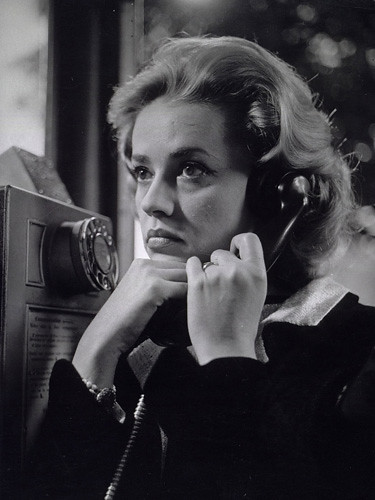
Before I began listening to jazz music I had two very distinctive ideas about its sound. My first impression was of a frenetic improvised noise, sound and fury that signified nothing. My second was closely linked to the film noir films of the 40s and 50s, and films of the French New Wave. These impressions, no matter how misleading or distorted, were qualities in jazz music that both repelled and attracted me.
I soon discovered that high-tempo improvisational jazz had a lot more to it than initially meets the ear. I investigated the music at some length, and began collecting old bebop records by Dizzy Gillespie and Charlie Parker, to discover that while often created on-the-spot, the music was still highly conceptualized and clearly thought out. It was never simply a question of picking up an instrument and blowing into it.
As for the film noir jazz that I'd always known had existed, I could never seem to find it. I looked far and wide, but whenever I came across something slow or contemplative it didn't quite have that quality that I had imagined. That is, until recently, when I discovered that none other than Miles Davis himself composed a film noir score for first-time director Louis Malle.
The film is called Ascenseur pour l'échafaud (Lift to the Scaffold) and is a suspenseful French thriller based on popular American crime dramas. I haven't yet seen the film, although I've acquainted myself with more stills than you can shake a stick at, but it's certainly something I'll investigate in the future. But what interests me more than anything else right now is its soundtrack.
Miles Davis travelled to Paris early in his career, before he achieved anything like the recognition that follows him today. In France opinions towards jazz music, and Miles Davis' ethnic background, were a world apart from his experiences in America. Miles has spoken of his time in Paris fondly, stating that he felt to be equal to those around him, and treated as such. He also voiced regret about his inevitable move back to the states, where racial tension continued to affect both his personal life and professional career.
Louis Malle, who later achieved both critical and popular appreciation as an aspiring artist in his field, requested that Miles record a pared-down jazz soundtrack to his first film, and Miles agreed. The recording sessions were relaxed and informal, with Miles on trumpet accompanied by four French musicians on tenor saxophone, piano, bass and drums. The sessions were recorded in Paris at night, on the 4th and 5th of December 1957 (two years before Miles released Kind of Blue). The film was shown on a large projector, and the band improvised along several themes to accompany the moving images.
The result is fantastic. I managed to pick up the soundtrack a few days ago, and it's become essential night listening for those after-dark cups of coffee. 'Black as midnight on a moonless night', as Agent Dale Cooper would say. There is a sense of mystery and suspense in these haunting tracks. The first sixteen pieces are out-takes from the sessions, and are fascinating in and of themselves. But it's with track 17 that things really get under way: the music used to score the film, enhanced with an echo effect that adds depth and weight to the recordings.
Julien Dans l'Ascenseur is a track that stands out in particular, with Miles Davis playing long, suspended notes on solo trumpet. Each sound hangs in the air indefinitely, as Miles slowly improvises around the same notes. Generique is another classic from the soundtrack, and stands out like a theme - it has a certain anthemic quality about it. But more than anything, Generique betrays the quality and the characteristics of the soundtrack as a whole. If film noir jazz exists at all, then this is it. The definitive statement. I can't imagine anything suiting my impressions more perfectly. It's an absolute gem.


